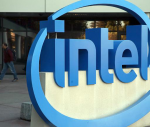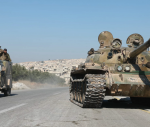You are here
Important contacts to defeat takfiris
Dec 21,2016 - Last updated at Dec 21,2016
Russian President Vladimir Putin and his Turkish counterpart Recep Tayyip Erdogan reacted to Monday’s assassination of Andrey Karlov, Russia’s ambassador to Turkey, by vowing to redouble efforts to normalise relations between their countries.
Ties have been strained by the war in Syria, where Russia backs the government and Turkey seeks regime change.
Relations took a tailspin when Turkey shot down of Russian warplane near the Syrian-Turkish border in November 2015.
In spite of the split over Syria and Ankara’s demonisation of Russia over its intervention in Syria, Moscow and Ankara have in recent months opted for reconciliation and rapprochement.
They concluded an agreement for the construction of an undersea pipeline to carry Russian natural gas to Europe, reducing gas exports via Ukraine, which has been the main route to Europe.
Moscow and Ankara seek to expand trade and tourism, and to reactivate an agreement for Russia to construct four nuclear reactors for a Turkish power plant.
The flow of Russian tourists to Turkey and the reactor deal were suspended after the loss of the plane.
While these arrangements grant more or less equal advantages to the two countries, the murder of the ambassador by a Turkish policeman provides Putin with a measure of leverage when dealing with Erdogan on the issue of Syria, particularly since some of his entourage favour a political settlement, which could leave Syrian President Bashar Assad in power, at least, for some time.
However, cooperation would compel the ambitious and prickly Erdogan to climb down from his warhorse.
He was the first regional leader to call for Assad’s fall and to try to secure this objective by forming the Free Syrian Army of defected officers and establishing the Syrian National Council as an alternative to the Damascus government.
For a political deal can be achieved, Ankara has to turn off the flow of funds, fighters and weaponry to Jaish Al Fateh (the Army of Conquest, led by Al Qaeda’s Jabhat Fateh Al Sham) in jihadist-occupied Idlib province and to put pressure on the takfiris to end their insurgency.
Ankara could, perhaps, open a route for foreign fighters to depart via Turkey, although this is problematic because their home countries may not want them to return.
The Syrian army and its allies only managed to recapture insurgent-held eastern Aleppo once it was surrounded and besieged, preventing the entry of arms and reinforcements and after insurgents agreed to leave and allow civilians to depart.
Assad has suggested insurgent-held Idlib province could be his target once the region around Aleppo city is cleared of armed opponents and fortified.
This is likely to take time.
Jabhat Fateh Al Sham (formerly Jabhat Al Nusra) and its allies remain in control of the countryside north and west of Aleppo city, as well as of neighbouring Idlib.
Furthermore, an all-out assault on Idlib will require input from Assad’s allies, Russia, Iran and Iraq, as well as Turkey’s cooperation.
Russia, Iran and Iraq are determined to prevent the continuing occupation of Syrian soil by Daesh in Raqqa and Deir Azzor and Al Qaeda-linked factions in Idlib and elsewhere.
The US and its Western allies have been conducting air strikes against Daesh in the Iraqi city of Mosul, where the ground offensive has stalled, and limited raids against Raqqa.
The Mosul operation is far more serious for the US than the planned assault on Raqqa, which is being conducted by a reluctant partner, the Kurdish-led Syrian Democratic Forces.
Syrian Kurds hesitate to constitute the main force of the campaign to retake a Sunni Arab city.
In spite of the failure of the Mosul and Raqqa campaigns to rout Daesh in short order, there is little doubt that the cult has been largely contained and is on the wane.
Once Daesh is turfed out of Mosul and Raqqa, its commanders and most of its fighters will have to flee Iraq and Syria.
Some can be expected to go underground as Al Qaeda, the parent, did in Iraq when under attack from US and tribal forces in 2007-08.
Jabhat Fateh Al Sham will then take over as the preeminent takfiri group in the region and Idlib will become the main takfiri base in both Syria and Iraq, a base from which Jabhat Fateh Al Sham and its allies are certain to carry out operations — as they have done for the past few years.
Since Jabhat Fateh Al Sham espouses the same ideology as Daesh, the difference between them is in style and, to some extent, behaviour.
This group also seeks to impose on unwilling Sunni Arabs a mediaeval polity and is prepared to resort to severe repression to achieve this end.
So far, the US has not targeted Jabhat Fateh Al Sham although it has been dubbed a “terrorist” group by the UN and the international community.
The logic is that the group can be used against Assad.
Russia, Iran and Iraq could very well be pre-pared to make certain this does not happen by launching an all-out offensive against Idlib.
It would be best if Turkey were ready to go along. This is why contacts involving Russia, Iran and Turkey are of major importance in defeating the takfiris of the Jabhat as well as Daesh.













